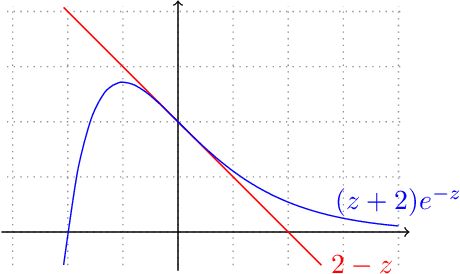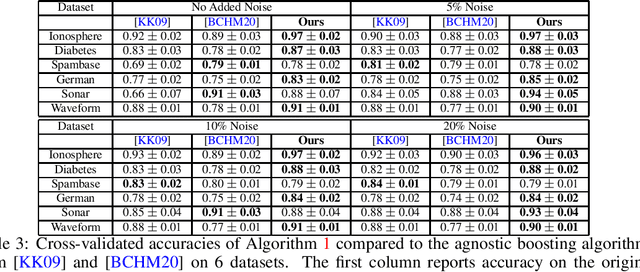Sample-Efficient Agnostic Boosting
Paper and Code
Oct 31, 2024



The theory of boosting provides a computational framework for aggregating approximate weak learning algorithms, which perform marginally better than a random predictor, into an accurate strong learner. In the realizable case, the success of the boosting approach is underscored by a remarkable fact that the resultant sample complexity matches that of a computationally demanding alternative, namely Empirical Risk Minimization (ERM). This in particular implies that the realizable boosting methodology has the potential to offer computational relief without compromising on sample efficiency. Despite recent progress, in agnostic boosting, where assumptions on the conditional distribution of labels given feature descriptions are absent, ERM outstrips the agnostic boosting methodology in being quadratically more sample efficient than all known agnostic boosting algorithms. In this paper, we make progress on closing this gap, and give a substantially more sample efficient agnostic boosting algorithm than those known, without compromising on the computational (or oracle) complexity. A key feature of our algorithm is that it leverages the ability to reuse samples across multiple rounds of boosting, while guaranteeing a generalization error strictly better than those obtained by blackbox applications of uniform convergence arguments. We also apply our approach to other previously studied learning problems, including boosting for reinforcement learning, and demonstrate improved results.
 Add to Chrome
Add to Chrome Add to Firefox
Add to Firefox Add to Edge
Add to Edge